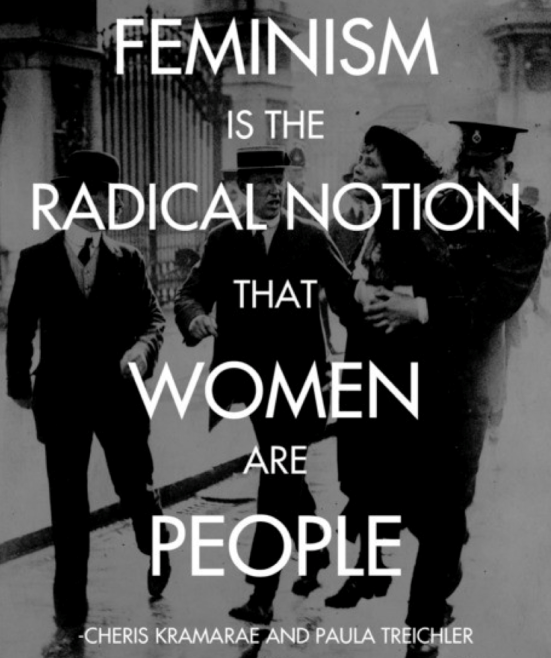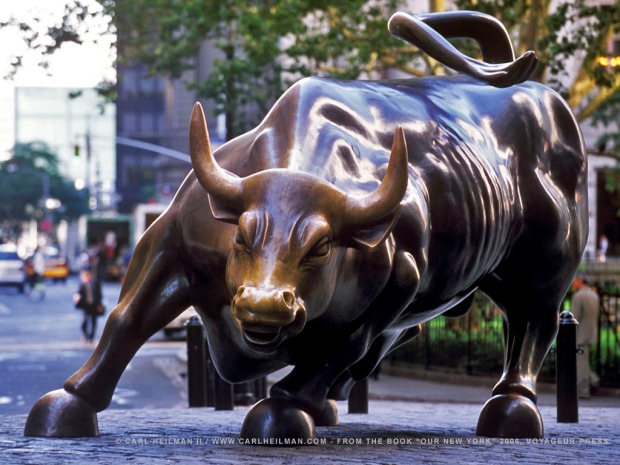Being a ‘Cash King’ in cash flow management
 Companies spend money to operate. Therefore, to stay in business, they also must bring money in. To be profitable, they must bring in more money than they spend. The movement of money through a company is called cash flow, which is the basis for all business operations.
Companies spend money to operate. Therefore, to stay in business, they also must bring money in. To be profitable, they must bring in more money than they spend. The movement of money through a company is called cash flow, which is the basis for all business operations.
Cash flow is critical to any business, and a positive cash flow enables a company to be profitable and to remain in business. A negative cash flow moves a company toward financial failure. With a negative cash flow, money is sucked out of the company, and at some point, the company runs out of cash and even runs out of the ability to borrow money. Without money to operate, the company is forced out of business.
There’s an old adage about business that “cash is king” and, if that’s so, then cash flow is the blood that keeps the heart of the kingdom pumping. Cash flow is one of the most critical components of success for a small or mid-sized business. Without cash, profits are meaningless. Many a profitable business on paper has ended up in bankruptcy because the amount of cash coming in doesn’t compare with the amount of cash going out. Firms that don’t exercise good cash management may not be able to make the investments needed to compete, or they may have to pay more to borrow money to function.
Achieving a positive cash flow does not come by chance. Companies have to work at it. You need to analyze and manage your cash flow to more effectively control the inflow and outflow of cash. The ‘trick’ is to undertake cash flow analysis to make sure you have enough cash each month to cover your obligations in the coming month.
Profit does not equal cash flow. You can’t just look at your profit and loss statement (P&L) and get a grip on your cash flow. Many other financial figures feed into factoring your cash flow, including accounts receivable, inventory, accounts payable, capital expenditures, and debt service. Smart cash-flow management requires a laser focus on each of these drivers of cash, in addition to your profit or loss. “There is a secret that very few business owners have discovered (and the accounting community has not done a good job revealing): knowing whether you earned a profit (or created a loss) is not the same as knowing what happened to your cash,” Campbell says. “Profit, as defined by the rules of accounting, is simply revenue minus expenses. Invoicing a customer for products or services you sold to them creates revenue. Actually collecting the money on that invoice is what creates cash.”
A positive cash flow is actually needed to generate profits. You need enough cash to pay your employees and suppliers so that you can make goods. It’s the sale of those goods that helps generate a profit. But if you don’t have the money to make the goods, you don’t end up with the profit. So you really need to structure your business to have a positive cash flow if you want your business to grow and increase profits.
Growing your business puts a huge strain on cash. You almost always have to make investments and bring certain expenses on ahead of achieving the higher revenue and cash flow that comes with successful growth. Maybe you want to open an office in a new city so you can build the business there. Also, you need to build a new facility so you have the capacity to sell to larger customers. Those scenarios (and others) require cash up front.
To put your cash flow situation under control is to begin tracking your cash flow results every month to determine if your management is creating the type of cash flow your business needs. This also helps you get better and better at creating cash flow projections you can rely on as you make business decisions about expanding your business and taking care of your existing bills.
Bank Reconciliation made simple
 Bank reconciliation is a process that explains the difference between the bank balance shown in an Organization’s bank statement, as supplied by the bank, and the corresponding amount shown in the Organization’s own accounting records at a particular point in time. Such differences may occur, for example, because a cheque or a list of cheques issued by the organization has not been presented to the bank, a banking transaction, such as a credit received, or a charge made by the bank, has not yet been recorded in the Organization’s books, or either the bank or the organization itself has made an error. It may be easy to reconcile the difference by looking at very recent transactions in either the bank statement or the Organization’s own accounting records and seeing if some combination of them tallies with the difference to be explained. Otherwise it may be necessary to go through and match every single transaction in both sets of records since the last reconciliation, and see what transactions remain unmatched. The necessary adjustments should then be made in the cash book, or any timing differences recorded to assist with future reconciliations.
Bank reconciliation is a process that explains the difference between the bank balance shown in an Organization’s bank statement, as supplied by the bank, and the corresponding amount shown in the Organization’s own accounting records at a particular point in time. Such differences may occur, for example, because a cheque or a list of cheques issued by the organization has not been presented to the bank, a banking transaction, such as a credit received, or a charge made by the bank, has not yet been recorded in the Organization’s books, or either the bank or the organization itself has made an error. It may be easy to reconcile the difference by looking at very recent transactions in either the bank statement or the Organization’s own accounting records and seeing if some combination of them tallies with the difference to be explained. Otherwise it may be necessary to go through and match every single transaction in both sets of records since the last reconciliation, and see what transactions remain unmatched. The necessary adjustments should then be made in the cash book, or any timing differences recorded to assist with future reconciliations.
Bank reconciliation is a critical tool for managing your cash balance. Reconciling as a process of comparing the cash activity in your accounting records to the transactions in your bank statement is critical in proper cash management. This process helps you monitor all of the cash inflows and outflows in your bank account. The reconciliation process also helps you identify fraud and other unauthorized cash transactions. As a result, it is critical for you to reconcile your bank account within a few days of receiving your bank statement.
Sometime past, bank statement do arrive at the end of the month, but the availability of banking platforms provide access to bank statement on daily basis. Bank reconciliations should therefore be completed to match the record of revenues and payments to those on the statement. Identify cheques that have not yet cleared and deposits that have not yet shown up on the statement. Bank reconciliations should be reviewed by a second party to maintain effective internal control.
Non-existent radicalists: panacea for our woes

The political theory of radicalism most often than not detonates the alteration process of social foundations. This political principle is seen as a revolutionary means of altering the social structures and fundamentally changing the value systems.
Is the absence of these radicals in recent times, a panacea for our woes as a country?
Ghana, as a country has reach an apogee, where the radical, vociferous and politically-awakened youth must counterpoise and reorient all stakeholders to create awareness, facilitate exchange of knowledge and best governance practices among political actors and governance processes.
This has a capacity to generate positive and sincere commitment from both public and private stakeholders to the contemporary issues, and trigger a shift of mindset from staunched ideological perspectives, as a competitive space to a genuine, collaborative and nationalistic space with the capacity to drive a holistic growth for Ghana.
Ghana is the land of our birth, and therefore the responsibility imposed on citizens by the 1992 Constitution to defend and uphold the integrity of Ghana must be of critical importance to every citizen!
GSE snapshot: 1 loser and 4 gainers [Wednesday February 10, 2016]

GSE closes with 1 loser and 4 gainers on Wednesday February 10, 2016.
- Volume Traded was 13,938.00
- Market Capitalization was GHS 57,079.08 m
- All Share Index was 1,998.51 pts
- Index Change was 15.72 pts
- Year-to-Date of 0.18%
At the end of Wednesday’s trading session, 13,938 shares valued at GH¢44,458.93 were traded.
Twelve equities traded with one loser and four gainers. TLW lost six pesewas to close at GH¢27.93 per share. On the other hand, BOPP, ALW and GCB gained one pesewa to close at GH¢3.07, GH¢0.09, and GH¢3.71 per share respectively, whilst ETI gained two pesewas to close at GH¢0.27 per share.
As a result of these stock price changes, the GSE Composite Index gained 0.18 points to close at 1,998.51 representing a year-to-date gain of 0.18%.
Please remember the value of investments can go down as well as up and you may not get back the amount you initially invested. If you have any doubts about which investment product is right for you please contact your financial adviser.
“Sitting on the fence”: a panacea for the ills in public governance?

Many of our forefathers sacrificed their lives for the peace and democracy we are enjoying today. It is therefore incumbent on us, as descendants to be interested in positive political discourse that strengthens the socio-political landscape. The youth, who are the future leaders must actively work together, share ideas and be involved passionately to making Ghana a better place instead of “sitting on the fence” and assuming apolitical orientation whiles the Country gets messed up by the minority elite. This attitude thus solidifies the famous saying ” Country broke, Country no broke, we all dey inside”
Being actively involved is an attempt to have a say in governance, it’s the beginning of citizens’ awakening, and that public officials and institutions should not see this as an attempt to make them unpopular. I believe the rational for active political and public policy discourse is to ensure that the Ghana that our forefathers once envisioned some 59 years ago, is the Ghana we have, and that we leave a better version of it for generations to come.
 As a people, we have a civic awareness or consciousness that hitherto may have been dead or dormant at best. As vibrant young stakeholders as we are, we must rather be seen to encourage the exercise of our constitutional right to speak our minds, rather than suffer in silence in the democratic governance of our dear country.
As a people, we have a civic awareness or consciousness that hitherto may have been dead or dormant at best. As vibrant young stakeholders as we are, we must rather be seen to encourage the exercise of our constitutional right to speak our minds, rather than suffer in silence in the democratic governance of our dear country.
Ghana must be better and I believe it’s our collective efforts that will make it so. It’s encouraging to see the solidarity being exhibited in recent times, and to see well-meaning Ghanaians from all walks of life move from “sitting on the fence” to becoming active participants in matters that concern our democracy as done by our forefathers some years back.
It’s my conviction and a personal mission to encourage the teeming youth to speak up and be actively involved in the governance process through dialogue and other positive public discourses for proper sanitization of the political landscape. Ghana is the only country of our birth and we are all duty bound and constitutionally mandated to protect and defend her integrity at all times.
GSE snapshot: zero lose and 2 gainers [Tuesday February 9, 2016]

GSE closes with zero loser and two gainers on Tuesday February 9, 2016.
- Volume Traded was 144,754.00
- Market Capitalization was GHS 56,646.77 m
- All Share Index was 1,982.79 pts
- Index Change was 0.97 pts
- Year-to-Date of – 0.61%
At the end of Tuesday’s trading session, 144,754.00 shares valued at GH¢136.775.45 were traded. Eleven equities traded with zero loser and two gainers. EBG and ALW gained one pesewa to close at GH¢7.06 and GH¢0.08 per share respectively
As a result of these stock price changes, the GSE Composite Index gained 0.97 points to close at 1,982.79 representing a year-to-date loss of 0.61%.
Please remember the value of investments can go down as well as up and you may not get back the amount you initially invested. If you have any doubts about which investment product is right for you please contact your financial adviser.
Feminist Threat: A reality or hallucination?

As I sit quietly on a fence just behind my house, I noticed an unusual banter between a young man believed to be in his forties and a young slim lady of about nineteen to twenty years there about. I was so amazed seeing how troubled and insecure the gentleman appeared, based on his demeanor, tonation and gesture.
I immediately fell-aback and knocked completely into a cogitating-mode. After a careful thought about the perceived threat posed by active and vociferous feminist, one of the strongest, yet least discussed, forms of prejudice in our current society is ‘hate’ and sometimes fear of ‘vociferous feminists’.
To further amplify the philosophical thought of feminine threat and hate, I came across a renowned Researcher who measured the clinical responses of bigots to various stimuli. The results were fascinating; in that “anti-feminism provokes a stronger phobic reaction (irrational visceral fear) than most common prejudices do”. Reportedly, his experiment shows that homophobia produces the strongest phobic reactions.
 Many persons have suffered wide attack and denigration as feminist or for supporting feminism in our society than for any other political view. Example of feminists who have suffered such attacks include Samia Nkrumah (daughter of Ghana’s first President), Madam Akua Donkor (Founder of Freedom Party), Valentina Nana Agyeiwaa (popularly known as Afia Schwarzenegger), Nana Aba Anamoah (formally of TV 3), Victoria Hammah (former Deputy Minister of Communications), Dr. Zenator Agyeman-Rawlings (NDC parliamentary candidate for Korle Klottey constituency) and many others.
Many persons have suffered wide attack and denigration as feminist or for supporting feminism in our society than for any other political view. Example of feminists who have suffered such attacks include Samia Nkrumah (daughter of Ghana’s first President), Madam Akua Donkor (Founder of Freedom Party), Valentina Nana Agyeiwaa (popularly known as Afia Schwarzenegger), Nana Aba Anamoah (formally of TV 3), Victoria Hammah (former Deputy Minister of Communications), Dr. Zenator Agyeman-Rawlings (NDC parliamentary candidate for Korle Klottey constituency) and many others.
Feminist threat and hate has become synonymous with common sexism and I believe should not be distinguished. A bit of public advocacy, discourse or debate on this silent but escalating trend would be a good start, since people tend to think more rationally about critical issues once there’s a cross-sectional dialog about them.
I believe a good and thought-provoking starting point that could stimulate an overwhelming public discussion across the length and breadth of this country, could be: “President John Dramani Mahama appoints Dr. Zenator Agyeman-Rawlings as his running mate for election 2016”.
GSE snapshot: 1 loser and 2 gainers [Monday February 8, 2016]

GSE closes with one loser and two gainers on Monday February 8, 2016.
- Volume Traded was 54,953.00
- Market Capitalization was 56,641.47 m
- All Share Index was 1,981.82 pts
- Index Change was 9.63 pts
- Year-to-Date of -0.66%
At the end of Monday’s trading session, 54,953 shares valued at GHS 17,395.16 were traded.
Twelve equities traded with one loser and two gainers. GGBL lost two pesewas to close at GH¢1.97. On the other hand ETI and CAL gained a pesewa and three pesewas each closing at GH¢ 0.25 and GH¢0.96 respectively.
As a result of these stock price changes, the GSE Composite Index gained 9.63 (0.49%) points to close at 1,981.82 representing a year-to-date loss of 0.64%.
Stock market analysts predict a further depreciation of the GSE-CI by some 1.14 points (0.06%) at the end of the next trading session.
Please remember the value of investments can go down as well as up and you may not get back the amount you initially invested. If you have any doubts about which investment product is right for you please contact your financial adviser.
All Politicians Lie: but some are “monolithic prevaricators”

With the impending November 7th presidential and parliamentary election, the usual loud-mouthed quadrennial contest for fact-bending, deception, half-truths, misdirection, and downright lies; the challenge to win the hearts and minds of voters, is in full swing with tight-armour once again.
In inking this write up, I’m trying to maintain a neutral stance on which party and which candidates are the most unfaithful, disingenuous and dishonest. But frankly speaking, lying seems to be reaching its escalating apogee with less than a year until the general election, although I expect some “nasty” political landscape going into November 7th polls, given the politics of insult and name-calling across the political divide.
It’s very amazing how often politicians who are supposed to be fully grown “adults” look into the faces of voters and lie, and the most intriguing aspect is their unwillingness to admit that they lied. The strategy and euphemisms that politicians use in many cases for such bold-faced lies are legend and mind boggling. Politicians are great liars and often misspoke on a lot of issues.
The currently biased media most often than not misinterpret what politicians posit for purely business, political expedience and favouritism. The words of politicians are often misrepresented, twisted, distorted, exaggerated, or taken out of context. They overstated, misstated, understated, and transmogrify facts and opinions. But more intriguing is the fact that politicians never lie, at least that’s what they say and preach to the voters. Yet, the unvarnished truth is that politicians do lie extensively about substantive policies that have a possibility to win them votes.
The multi-million dollar question worth asking is that: Why are politicians so convinced that they can lie to the face of voters and get away with it? Voters in the 21st century have come a long way. Voters are very sophisticated lately and possess elevated thinking and analytical abilities given the internet and the crop of professional civil society groups and the level of political and economic discourse that runs through the media landscape, especially morning shows and press conferences.
Politicians never dream of adhering to honesty as a best policy in political discourse. Political communicators are bent on feeding the public with “baked” information to stimulate voters to vote based on lies and non-issues. This attitude suppresses facts and sound policies which should have been a basis for voting for a preferred candidate.
Party loyalists most often complain about media and opposition biases, but it is interesting to know that the less partisan and strategic voters; often called the “floating voters” for some time now pay a lot more attention to the media, issues raised by credible policy analysts and statesmen, and more importantly their living conditions, especially in a country where elections are usually worn by a few margin. Trust and integrity are still crucial assets for a politician going forward given the social contract principle and the need for accountability.
Politicians know their followers will believe them, even in the face of irrefutable evidence to the contrary. Politicians and their adherents live in an echo chamber in which everyone watches the same news channel, listens to the same talk radio, reads the same newspapers and web sites, and hangs out with the same like-minded people. There exists an impermeable membrane that prevents conflicting information from entering their inner circles.
Many politicians are narcissists; it isn’t difficult to see the connection. Narcissists are arrogant, self-important, see themselves as special, require excessive admiration, have a sense of entitlement, and are exploitative. This constellation of narcissistic attributes causes them to believe that they are right and, even if they are not, they’re too smart to be caught or suffer the consequences.
People don’t want to hear the truth. Truth, as the saying goes, hurts and no one wants to hear things that threaten their existence, their beliefs, or that will make them uncomfortable. It is decidedly better for politicians to tell people what makes them feel comfortable. Why should politicians be the purveyors of bad news and decrease the likelihood of getting people’s votes, when they can tell fairy tales with happy endings which, of course, everyone wants and come out victorious?
Truth matter very much in politics and that those politicians who spew “lies” and “propaganda”, should know that, most people don’t settle on a candidate until much closer to casting their vote. It’s the voters who will at the end punish or reward candidates for what they’ve said on the campaign trail.
I’m very confident that Ghanaians have all the information they need to help them choose wisely on November 7th.
Bullish markets: tactical ammunition for investors

One school of thought says that a bull market exists when at least 80% of all stock prices rise over an extended period. Another school of thought also says that a bull market exists if market indices rise at least +15%. Of course, different market sectors may experience bull markets at different times.
The probable causes and characteristics of bull markets vary, but most financial theorists agree that both economic cycles and investor sentiment both play a role in the creation and momentum of bull markets. In general, a strong or strengthening economy, indicated by high employment, high disposable income and high business profits usually ushers in a bull market.
Rising investor confidence also indicates a bull market and is perhaps more powerful than any economic indicator. When investors believe something is going to happen (a bull market, for example), their actions can turn it into a self-fulfilling prophecy. Although difficult to quantify, investor sentiment can show up in mathematical measurements like the put/call ratio, the advance/decline line, IPO activity and the amount of outstanding margin debt.
In a bullion market, when the market is booming, your share trading approach should be to purchase fundamentally healthy firms, which would earn you big returns whether you are an shareholder in Ghana, Africa or wherever else in the global share market. It is often important to notice and appear for firms with the golden tracking characteristics:
- Earnings that are rising sooner than average.
- Conducting business in a healthy sector.
- Operating in a rising market.
In times of duress, use market volatility as a gauge for your risk tolerance. When market conditions return to calm, fine-tune your approach to investing to be better prepared next time. Don’t worry, the market always survive the shocks.
Please remember the value of investments can go down as well as up and you may not get back the amount you initially invested. If you have any doubts about which investment product is right for you please contact your financial adviser.

Comments